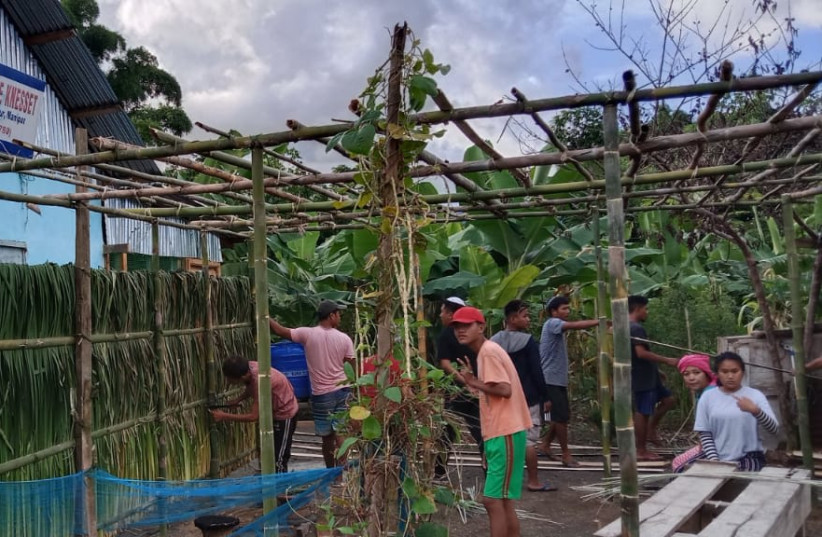Shavei Israel, a Jerusalem-based nonprofit, has released a new and improved version of the first Kuki-Hebrew siddur containing a set order of daily prayers. The organization first published it seven years ago.
The updated siddur can be used year-round and is aimed at assisting members of the Bnei Menashe community both in India and in Israel. It contains a special letter of blessing from Rabbi Yitzhak Yosef, the Sephardi chief rabbi of Israel, who reviewed its contents carefully.
About the first Kuki-Hebrew siddur
The siddur contains the original Hebrew text according to the Sephardi rite, with a phonetic transliteration and annotations in the Kuki language. The Bnei Menashe are descendants of the tribe of Manasseh, one of the Ten Lost Tribes exiled from the Land of Israel more than 2,700 years ago by the Assyrian Empire.
More than 5,000 Bnei Menashe who made aliyah with the help of Shavei Israel live in Israel. Some 5,000 Bnei Menashe still reside in India and “await the day when they, too, can make aliyah,” Shavei Israel said in a press release.

The Kuki language and its various dialects are a branch of the Sino-Tibetan family of languages that are spoken in the northeastern part of India, where the Bnei Menashe community resides, as well as in eastern Bangladesh and western Burma.
“Shavei Israel is proud to be reissuing the first-ever Hebrew-Kuki Siddur,” Shavei Israel founder and chairman Rabbi Michael Freund said. “When a person prays from a siddur, he connects with his Creator and with Jewish tradition. Publishing the siddur is part of our ongoing efforts to reach out to the Bnei Menashe of northeastern India and assist them as they reconnect with the Jewish people after 2,700 years of exile.”
